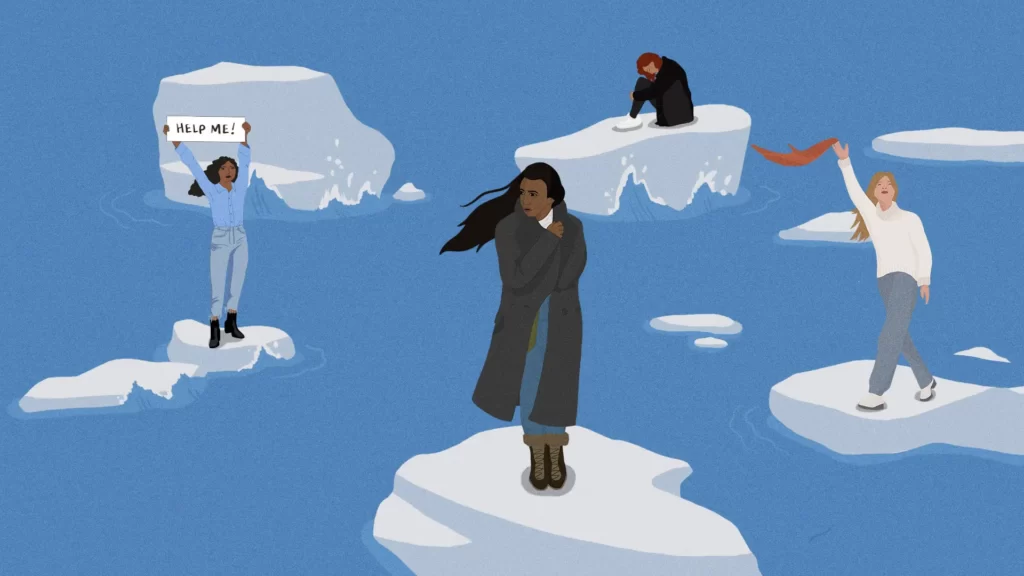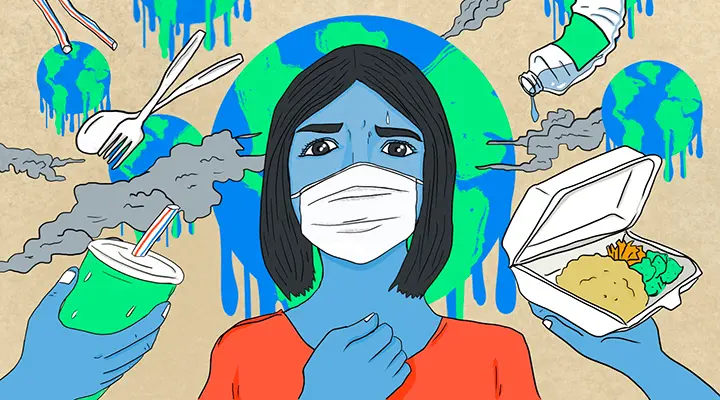“It’s in those bleak, liminal times before dawn that the eco-anxiety hits hardest. I lie in bed praying, desiring with all my heart that there be a future; that I might have again that taken-for-granted confidence that I’ll live to see grandchildren, great-grandchildren. Now young people are deciding not to have children at all” (Personal reflections by Anglican theologian Frances Ward; Ward 2020, p. 141).
The concept “eco-anxiety” refers to a variety of difficult emotions and mental states that are significantly related to environmental problems, while “climate anxiety” refers to the climate-change-related forms of eco-anxiety (for discussion about terminology, see Pihkala 2020a; Wardell 2020). Some people felt eco-anxiety already decades ago (Clinebell 1996, pp. 13–14, 31–32), but it is currently an increasingly widespread phenomenon. For example, a recent global survey about climate change among 10,000 children and youth in 10 countries revealed that 56% of them thought that “humanity is doomed”, while 75% felt the climate future to be frightening; 42% reported having felt at least some hesitation in having children because of the climate crisis (Hickman et al. 2021).
Even amidst the COVID-19 pandemic, climate concerns and worries are very high (Pew Research Center 2021). Worry and anxiety can be separated technically from each other, but in relation to climate change and other ecological problems, these mental phenomena are deeply connected (Ojala et al. 2021). People may feel climate-related fear, anxiety, and worry because of many kinds of things, for example, the uncertainty of the future, the damage that has already been done to ecosystems and social systems, changes in identities and lifestyles, and the loss of hope and dreams (for various kinds of climate- related loss, see Tschakert et al. 2019). Some people recognize these feelings as related at least partly to the climate crisis, while some people try to avoid making that link for various reasons such as group pressure or internal psychological anguish (for climate denial as a coping mechanism, see Haltinner and Sarathchandra 2018). Thus, there is both explicit and implicit climate anxiety (cf. Weintrobe 2021; LaMothe 2021a).
Eco-anxiety and climate anxiety have received growing attention in public discussions and research. There are disputes about what terms would be the best and about the framing of these phenomena, but even more fundamentally, there is a growing concern about the resilience of people amidst the growing ecological damage (see, e.g., Cunsolo et al. 2020). It seems evident that varieties of eco-anxiety will increasingly feature in the lives of people who seek pastoral care support or, more widely, spiritual care. This provides many challenges and possibilities. How will providers of pastoral care frame eco-anxiety—as mainly a mental health issue or as a broad phenomenon that also includes action tendencies and moral emotions? Will providers of pastoral care show care and recognition to people who feel eco-anxiety? What kind of methods will they use, and what ways forward will they offer people?
Eco-Anxiety: Practical, Paralyzing, and Existential
The term anxiety is notoriously wide-ranging (Barlow 2004; LeDoux 2016). Many health professionals use it in the connotation of anxiety disorders. Philosophers and theologians tend to use the term in the connotation of existential angst: anxiety about the human condition, and yet further, emotion researchers point out that anxiety is also an emotion that arises in relation to potential threats, which include some kind of problematic uncertainty from the point of view of the individual (Kurth 2018).
When interdisciplinary research about anxiety and the ecological crisis is evaluated, it can be discerned that the word anxiety is used in all of these connotations in relation to eco-anxiety (Pihkala 2020a). Eco-anxiety can manifest as strong anxiety, and it can be paralyzing (e.g., Clayton 2020; Taylor 2020); sometimes, the philosopher Glenn Albrecht’s (Albrecht 2011) concept of “eco-paralysis” is used to refer to the paralyzing form (see also Albrecht 2019). Existential psychologists, philosophers, and theologians have increasingly written about the dimensions of eco-anxiety that have the characteristics of existential anxiety: people are grappling, for example, with questions of freedom and guilt, and meaning and meaninglessness, in relation to the vast ecological crisis.
The Role of the Caregivers
A crucial challenge is the resilience and attitudes of the caregivers (in this case, the pastoral care providers). In relation to caregivers in general, it has been increasingly noted that the ecological crisis is a psychologically demanding topic for them, too. The sheer weight and intensity of the crisis are difficult to bear (if proof is needed, the natural sciences offer plenty of data and predictions; see, e.g., Steffen et al. 2015). The issue is made more difficult by the fact that everyone is implicated in the crisis: the topic challenges people’s behavioral habits, their values, their identities, their beliefs, and their dreams about the future. Furthermore, people may already have so many other difficulties in their lives that it is challenging to give any resources to the ecological issues. As a result of all this complexity, people have been noticed to be prone to distancing reactions, in other words, to disavowal and various other forms of denial.
The Existential Depth of Eco-Anxiety
The wording “existential crisis” can be used in two connotations in relation to the climate crisis. First, the term is sometimes used to refer simply to the life-threatening character of this global crisis. For many people, the climate crisis is an existential threat to their very survival or their well-being. Second, the term can be used in the sense of existentialism, referring to the difficult questions and feelings related to being human in a vast universe.
The Political Dimension and Justice Issues
Eco-anxiety is furthermore complicated by the strong political character of ecological and climate issues. This character can cause hesitation in many therapists and pastoral care providers, who would not like to take political stances in their work (cf. LaMothe 2016). As for eco-anxiety itself, it is often made more difficult by social and political disputes. Anxiety is lessened if there is a feeling that the collectives around oneself are taking determined action to prepare and mitigate the threats which cause anxiety. However, unfortunately, the responses of collectives towards climate issues are often ambiguous, and sometimes, the leaders are in denial or disavowal (for a scathing critique of this, see the recent climate psychology book by Weintrobe 2021). For example, young people have often reported that their climate anxiety has grown worse because political leaders do not engage in ambitious climate politics (e.g., Hickman 2020; Jones and Davison 2021; cf. Hickman et al. 2021; Johnson and Wilkinson 2020).
The Way Forward?
Currently, the public discussion abounds with implicit and explicit talk about the various forms of hope, despair, and hopelessness in relation to the ecological crisis and the climate crisis. There are naturally many stances on these issues. Some advocate for “realistic” hope, which is empathetic towards the suffering, while others in a rather similar vein emphasize “radical hope”, hoping even while there cannot be knowledge about what exactly could save the situation. Some are more pessimistic: there are notable social movements, albeit countercultural, which base their action on the firm belief that there will be major socio-ecological collapses in the near future. Additionally, theological reflections of this vein have started to emerge. The members of these movements sometimes accuse other people of practicing “hopium”, an addictive belief that there is still hope in the form of optimism. However, the author here joins the eco-anxiety writer Weber (2020) in his critique of both “hopium” and “reverse hopium”: the latter term pointing to another form of binary thinking where it is held evident that there can be no hope.
It seems that the way forward could indeed be a dialectical one: a kind of pilgrimage that takes place between hope and hopelessness or through fluctuations of them. LaMothe, who has written in depth about the issues of hope and hopelessness amidst the ecological and political crises, champions a roughly similar view. Discussing the striking book by theologian Miguel de la Torre, Theology of Hopelessness, LaMothe argues that courageous care should be the main emphasis, not hope. Drawing from philosopher Agamben’s notion of inoperativity, LaMothe argues that hope could be seen as inoperative: it would not be the frame in which issues are interpreted, but rather people should practice care nevertheless. The author’s own earlier emphasis on “tragic hope” and the centrality of the concept of meaning have many similarities with LaMothe’s view. Quoting Kaur, LaMothe summarizes his view: “This is our defiance—to practice love even in hopelessness”.
Read more: Download the full paper

Source
Image Source
Tags: Eco-Anxiety and Pastoral Care


